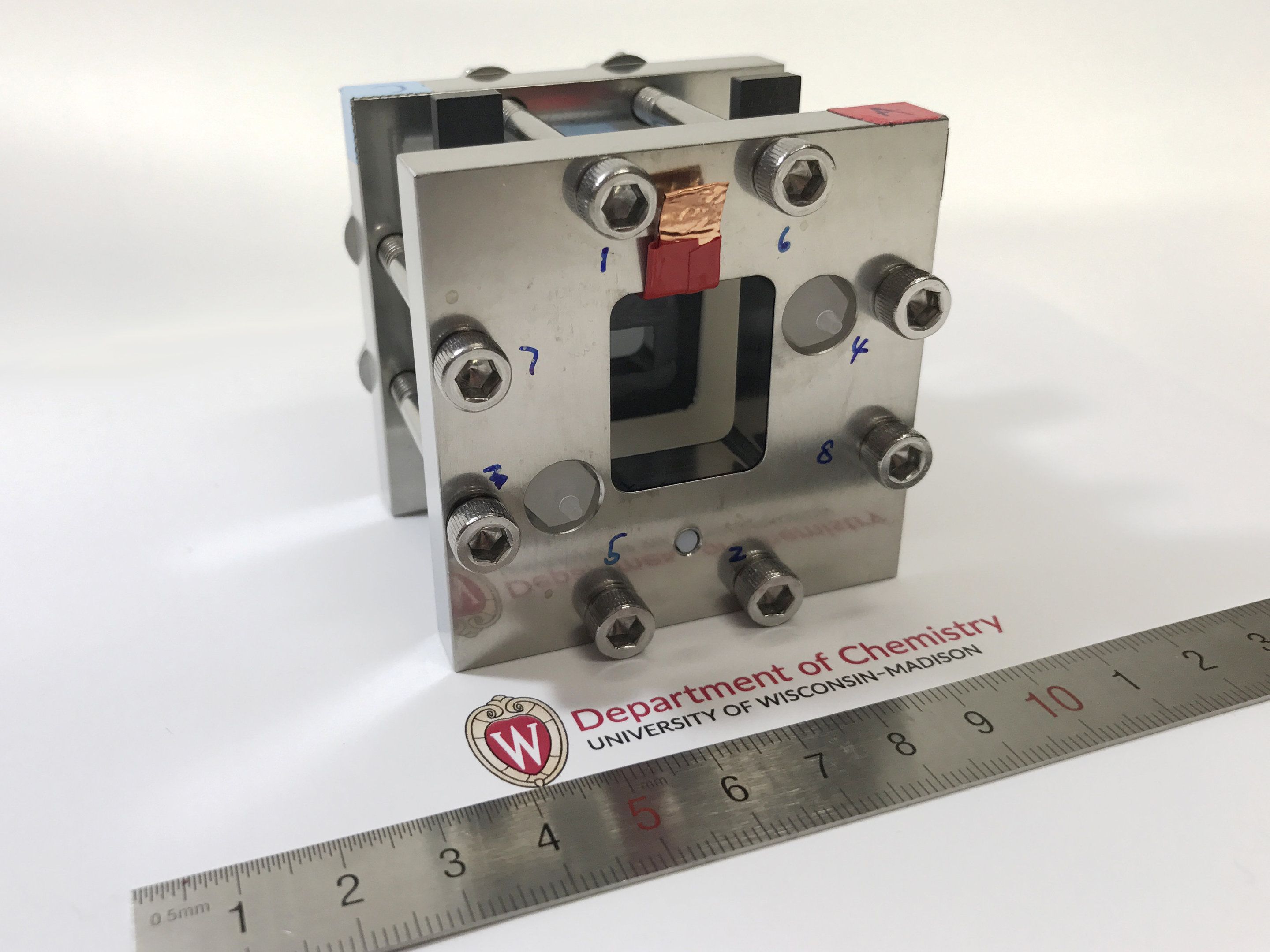Scientists in the United States and Saudi Arabia have harnessed the abilities of both a solar cell and a battery in one device—a “solar flow battery” that soaks up sunlight and efficiently stores it as chemical energy for later on-demand use. Their research, published September 27 in the journal Chem, could make electricity more accessible in remote regions of the world.
While sunlight has increasingly gained appeal as a clean and abundant energy source, it has one obvious limitation—there is only so much sunlight per day, and some days are a lot sunnier than others. In order to keep solar energy practical, this means that after sunlight is converted to electrical energy, it must be stored. Normally this takes two devices—a solar cell and a battery—but the solar flow battery is designed to perform like both.
“Compared with separated solar energy conversion and electrochemical energy storage devices, combining the functions of separated devices into a single, integrated device could be a more efficient, scalable, compact, and cost-effective approach to utilizing solar energy,” says Song Jin, a professor of chemistry at the University of Wisconsin-Madison. Jin and his team developed the device in collaboration with Jr-Hau He, a professor of electrical engineering at King Abdullah University of Science and Technology (KAUST) in Saudi Arabia.
